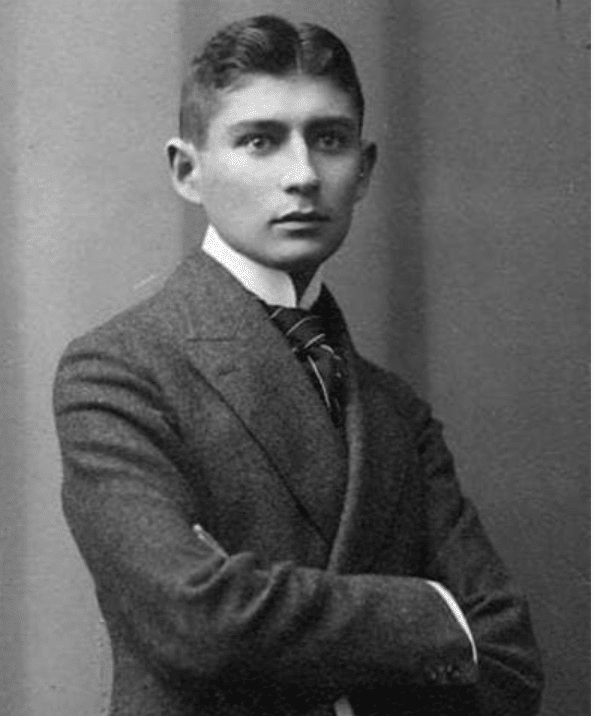
Franz Kafka was born on July 3, 1883, in Prague, then part of the Austro-Hungarian Empire. His works, though relatively few in number, have had a profound impact on modern literature and continue to be celebrated for their exploration of existential themes, alienation, and the absurdity of human existence.
Franz grew up in a middle-class Jewish family. His father, Hermann Kafka, was a successful merchant, and his mother, Julie, came from a prosperous family. Kafka had a complex relationship with his parents, especially his father, and this strained dynamic was often reflected in his writings.
After completing his education, Franz worked for an insurance company, during the day but in his free time after work, he pursued his literary ambitions, often writing late into the night. Kafka published only a few of his works, including “The Metamorphosis,” “The Trial,” and “The Castle,” but he left behind a significant body of unpublished manuscripts and letters.
His writing was characterized by a unique blend of realism and surrealism, often depicting protagonists who find themselves trapped in bewildering and nightmarish situations. His works explore themes of alienation, guilt, powerlessness, and the struggle for identity and self-expression. Kafka’s style, marked by its precision and attention to detail, had a significant influence on many of the writers who followed him.
Kafka’s literary career was fraught with personal struggles and constant self-doubt. He was an introverted and solitary person whose relationships with women, including his engagement to Felice Bauer and later with Milena Jesenská, were often complicated and strained with tension. At age 40, Franz Kafka, still unmarried and uncommitted, was walking one day through a park in Berlin when he met a girl who was crying because she had lost her favourite doll. After an unsuccessful search for the doll, Kafka told her to meet him in the park the next day and they would search together for the missing doll.
The next day, Kafka handed the little girl a letter “written” by the doll saying “please don’t cry. I took a trip to see the world. I will write to you about my adventures.” In the months that followed Kafka met regularly with the little girl. During their meetings, Kafka delighted his little friend by reading letters from the missing doll. Finally, Kafka presented the little girl with a doll that he had purchased, claiming that it was her missing doll that had returned to Berlin. When his young friend protested, “It doesn’t look like my doll,” Kafka handed her another letter from the doll explaining, “My travels have changed me.” The little girl hugged the new doll, rejoicing at their reunion, and went home, never to see Kafka again.
Kafka died from tuberculosis a few months after their final meeting. Years later, when the little girl had become a grown woman, she discovered a tiny note signed by Kafka stating, “Everything you love will probably be lost, but in the end, love will return in another way.”
Franz Kafka’s literary genius was only recognized after his death. Max Brod, a close friend and writer, defied Kafka’s request to destroy his unpublished manuscripts and instead published them after the author’s death. This decision played a crucial role in establishing Kafka’s reputation as one of the most significant and influential writers of the 20th century. Today, his works continue to captivate readers and inspire scholarly interpretations of his unique vision of the human condition and the complexities of modern life making him an enduring figure in the literary world.
